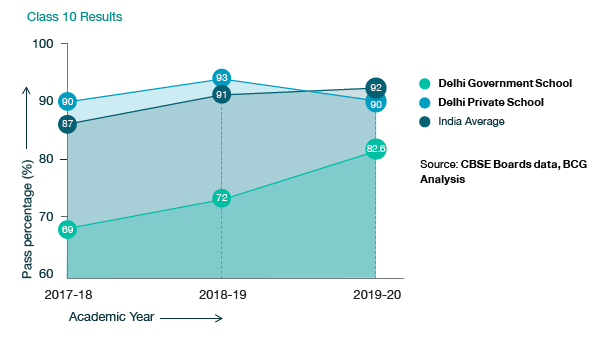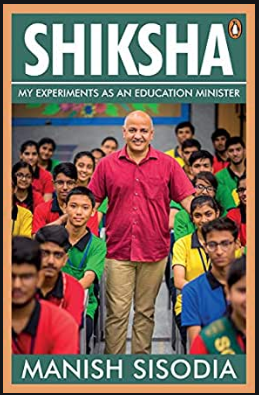Earlier this week, BCG released an independent report on Delhi’s education reforms over the past five years. https://drive.google.com/file/d/1CvYHOCYuZV-F5cuvW11txGbbfL6Qf0Bd/view?usp=sharing
Here are some of the highlights (1/9)
#DelhiEduConf
Here are some of the highlights (1/9)
#DelhiEduConf
National test results in Delhi public schools have shown significant improvement in grade 10 and 12, improving at a faster rate than the national average, and when compared to private schools. (2/9)
Students report that teachers’ attendance and engagement has improved, and researchers found a sense of renewed aspiration and motivation across stakeholder groups. (I have also had many Delhi teachers tweet me about how motivated they are by the reforms!) (3/9)
So what did they do?
1. Delhi significantly upgraded school infrastructure.
Previously I wouldn’t have thought school buildings made much difference to the quality of education, but teachers reported that this was a significant cause of their improved motivation. (4/9)
1. Delhi significantly upgraded school infrastructure.
Previously I wouldn’t have thought school buildings made much difference to the quality of education, but teachers reported that this was a significant cause of their improved motivation. (4/9)
2. They strengthened parental engagement through school management committees and ‘mega’ parent-teacher meetings. (5/9)
3. They introduced a ‘happiness curriculum’ for primary students and an ‘entrepreneurship mindset curriculum’ for older students.
Although their impact on national results is unclear, they are popular with students, and I’m told there’s more to education than tests ;-) (6/9)
Although their impact on national results is unclear, they are popular with students, and I’m told there’s more to education than tests ;-) (6/9)
4. They introduced programmes to support foundational literacy and numeracy – summer camps, temporary and flexible grouping within classes, and additional teacher support materials. (7/9)
5. Most important is the ‘how’: "the Delhi approach relies on understanding and leveraging core human behaviours of the people already within the system – most critically the frontline. It is a model that puts faith as well as
power in the hands of its frontline". (8/9)
power in the hands of its frontline". (8/9)
A wonderful accompaniment to the BCG report is this book from the man behind the reforms, @Minister_Edu, which gives the inside story on how Delhi was able to achieve these successes. It’s a story of political will, and of a belief in giving agency to those on the frontline.(9/9)

 Read on Twitter
Read on Twitter



